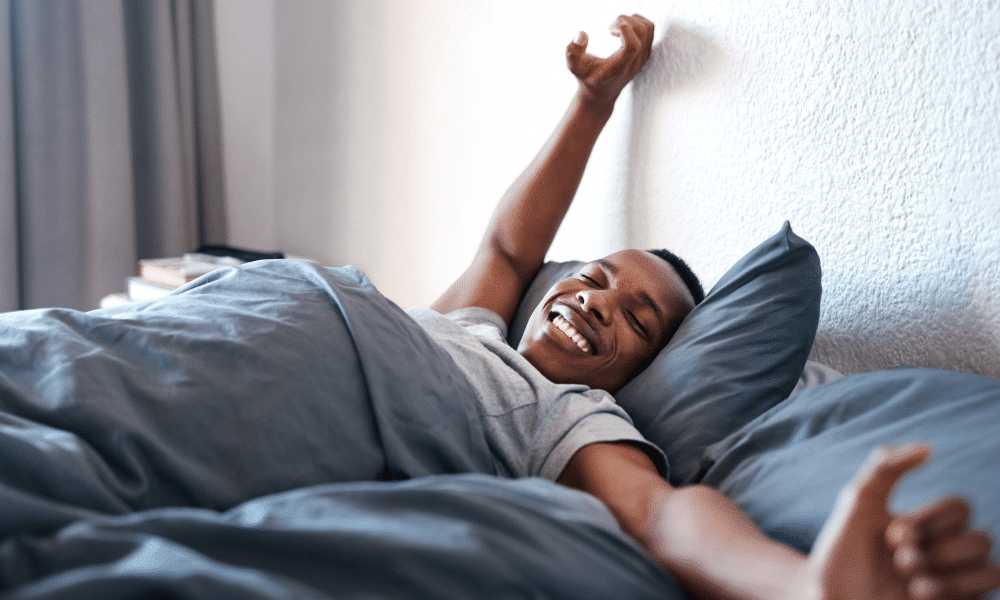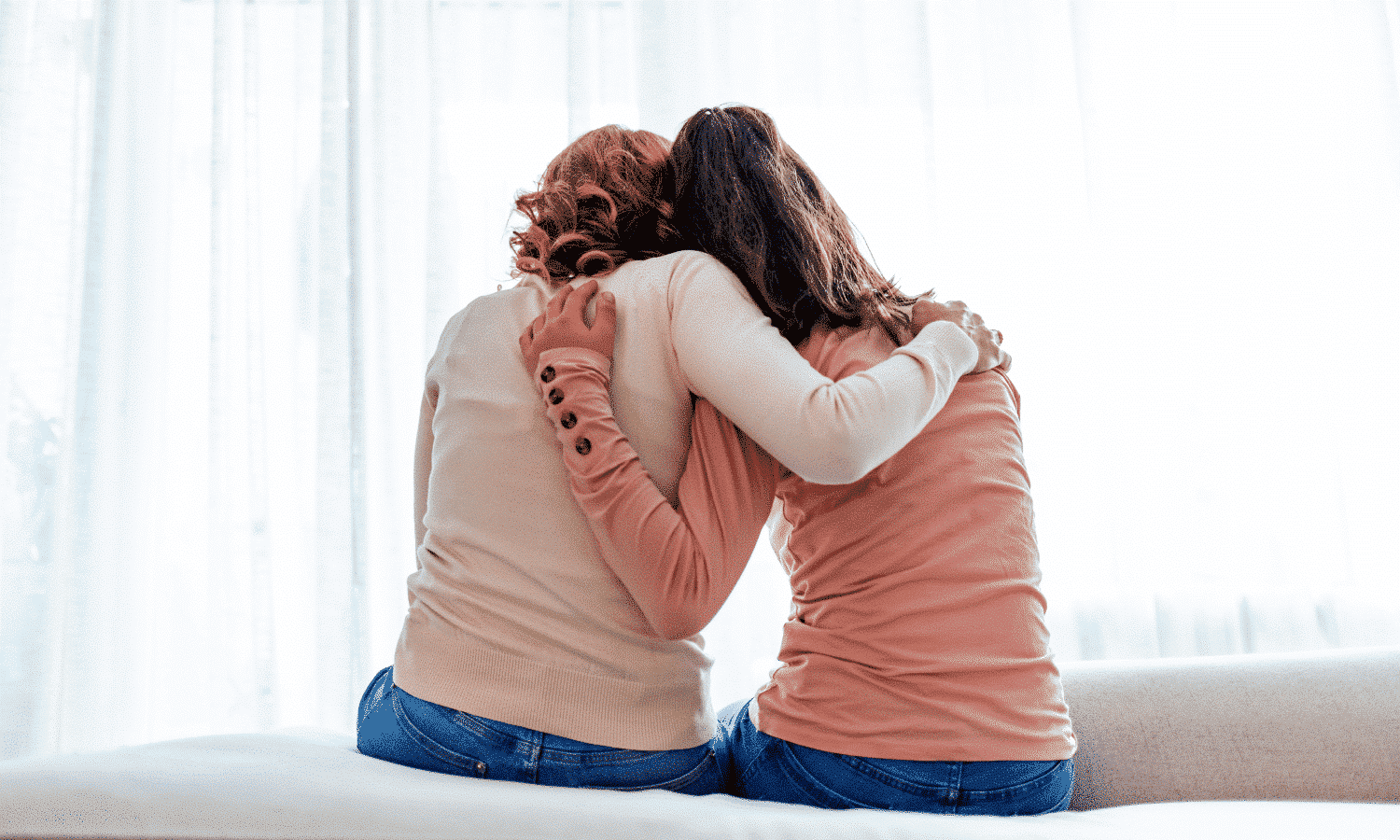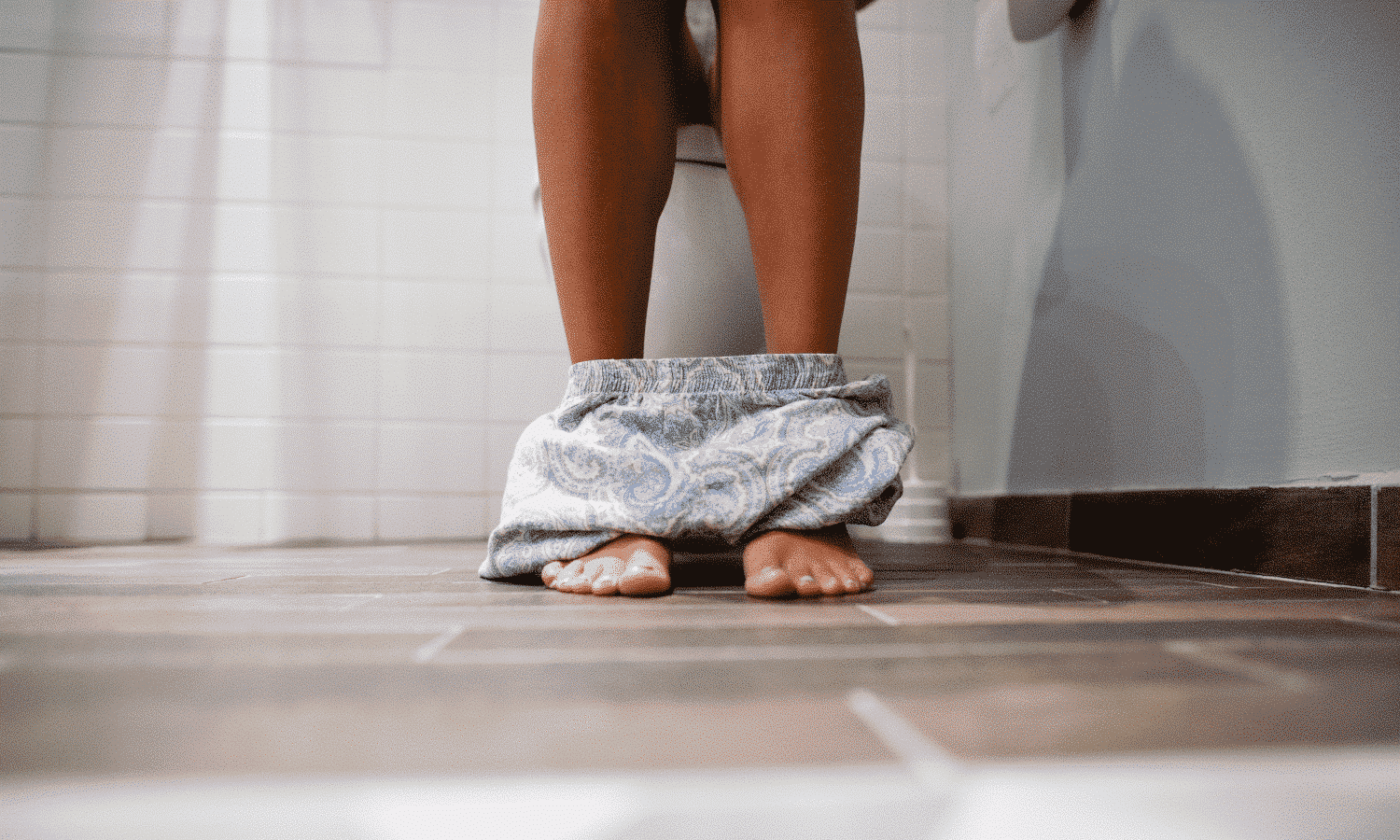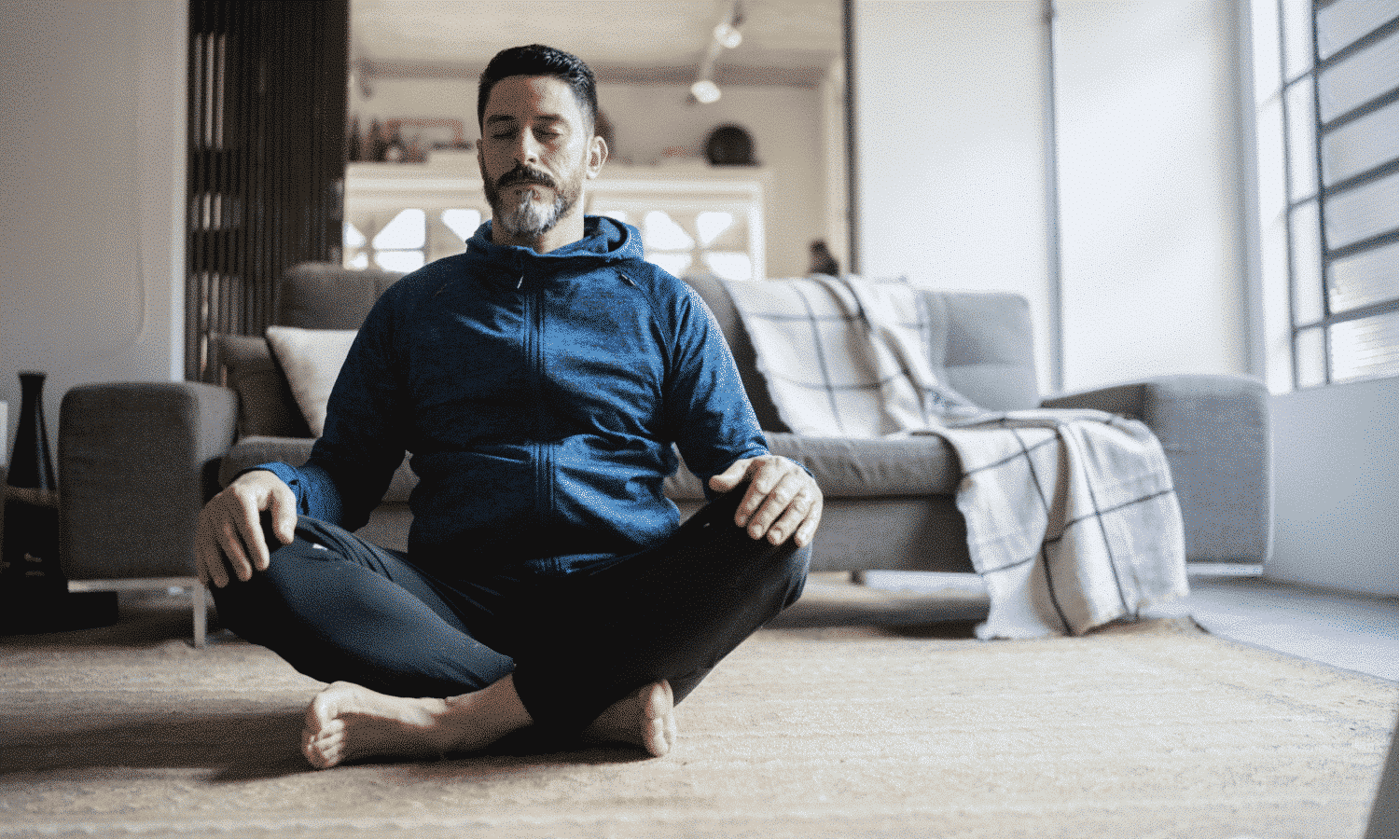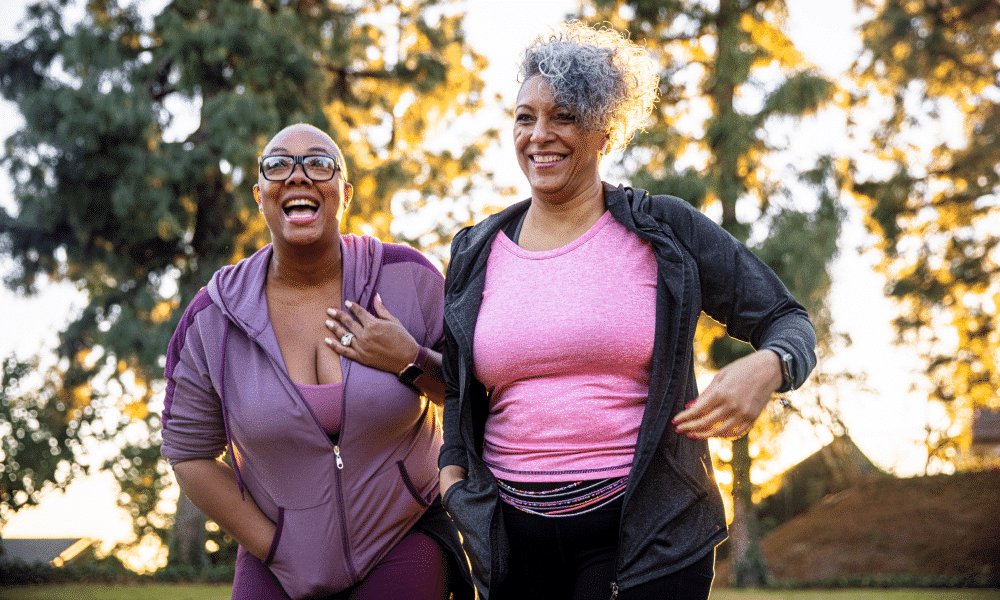|
Getting your Trinity Audio player ready...
|
There’s nothing quite like the feeling of a good sleep. It sets us up nicely for the day and we feel energetic, maybe even invincible. So why is it sometimes so hard to get the amount of rest we need?
Almost half of all Americans report feeling sleepy during the day between three and seven days a week, with 35.2% of adults sleeping fewer than seven hours a night.
Not only are we battling with some stressful times, but our minds and bodies often seem to be in overdrive. Many of us are dealing with being overworked, overstressed, overstimulated, and overtired. Quite frankly, we’re over it.
Getting sufficient sleep is essential for a healthy body and mind. We’re here to guide you on why good sleep hygiene is so important and how you can master it. Peaceful slumber awaits you…
What is sleep hygiene?
From your linens and lights to your dinner and downtime activities, every little thing counts when it comes to sleep hygiene.
Essentially, sleep hygiene comes down to your sleep habits, including the things you do before sleep and how your environment is set up.
Poor sleep hygiene, just like poor dental hygiene or poor personal hygiene, can lead to problems.
Learning how to practice healthy sleep habits and behaviors to achieve excellent sleep hygiene will benefit you now and in the long term. Let’s start by understanding why regular, decent sleep is critical to a good quality of life.
Why is healthy sleep hygiene so important?
Scientists have measured that, in today’s world, we are processing about 74GB of information on a daily basis, which is equivalent to watching 16 movies!
When we’re not working, we’re scrolling, watching, reading, creating, exercising, and socializing, as well as maintaining friendships, relationships, and families. That’s a lot for our minds to process.
These are some of the reasons why we should be aiming for at least seven hours of sleep per day. But they’re not the only ones. When we are asleep, our bodies are quietly performing a number of jobs to make sure that we remain as healthy as possible.
Energized and alert
Because of everything our minds and bodies are required to perform while they’re awake, getting enough rest is vital. It’s just like charging our phones: sleep gives us the energy we need to function and be alert for the waking hours of our day.
Brain function
As mentioned before, our brains are taking in a wealth of information daily. So, there is bound to be some “waste” that we don’t need. Our brains sort out what’s needed from what’s not to make sure our nervous systems aren’t overwhelmed.
Sleep can affect several brain functions, including converting short-term memories to long-term memories, learning, decision-making, problem-solving skills, focus, and concentration.
Therefore, when you haven’t managed to get enough rest, your ability to remember things well or to focus may reduce.
Mental health
When we’re sleeping, our brains are working hard to make sure that we can maintain emotional stability. When we’re well-rested, we can respond to stressful situations in a more adaptive way. On the other hand, when we’re not, we’re more likely to become anxious and stressed.
Good sleep prepares us to take on the daily stressors that life presents to us.
Strong immune system
Sleep provides the immune system with essential support so that its able to defend our bodies against illness. If we don’t get the sleep we need, we can be more likely to become sick.
People who are living with a chronic condition especially benefit from sleep because the immune system uses this time to repair cells and tissues, and fight inflammation.
How to achieve healthy sleep hygiene
Sometimes, you can’t control how long or how well you sleep. You also can’t control when you sleep, especially if your job requires shift work, if you have babies or young children, or if you’re living with a condition that causes your sleep to be disturbed at night.
However, you can create your own routine around sleep to give you some structure, and applying the right behaviors and habits to this routine will give you the best possible chance of blissful slumber.
Set a sleep schedule
In an ideal world, we would go to bed and wake up at the same time every day – even on the weekends. However, that’s not always easy. A number of things can make creating a consistent sleep schedule difficult. The important thing is setting the intention, and trying to build a calming routine around the time you want to go to bed so that sleep comes easier.
I go to bed at the same time and wake up at the same time throughout the whole week. Even on weekends. I don’t even need a clock anymore. My inner clock is perfectly set to that routine and I feel a lot more energized.
Get natural sunlight first thing in the morning
Exposing yourself to natural sunlight within an hour of waking up can help regulate your circadian rhythm or your body clock. However, if you live in an area of the world that’s dark in the morning, investing in a sunlight lamp might do the trick. Simply put yours on a timer so that it works its illuminating magic as you wake up.
It’s best to spend about 30-45 minutes soaking up some sunlight in the morning (always being careful not to look directly at the sun and be sure to protect your skin).
We can’t think of a better reason to have your breakfast or morning cup of tea or coffee outside, or to head out for an early morning stroll!
Exercise
Not only is regular exercise vital to your physical and mental health, but it can improve your sleep too. It increases sleep quality and reduces the amount of time it takes to fall asleep.
A minimum of 30 minutes of exercise each day is advised. If you prefer to work out later in the day, it’s best to do so a few hours before you go to bed so that your sleep isn’t disrupted.
Sex
How about sleep and sex? Well, sexual activity can contribute to better sleep because, after an orgasm, our bodies release hormones that encourage relaxation. Sex also reduces the levels of the stress hormone, cortisol, which may also affect sleep hygiene.
Limit caffeine and alcohol intake
Because caffeine is a stimulant – something that increases activity in the brain and nervous system – drinking too much caffeine during the day, especially later in the day, can make it hard for you to fall asleep. Therefore, avoiding caffeine in the afternoon and evening is a good idea.
Similarly, excessive consumption of alcohol, a depressant, has been linked to poor sleep quality and duration. Studies have also shown that alcohol use can worsen sleep disorders such as sleep apnea, a condition where a person’s breathing stops and restarts while they’re sleeping.
Get comfortable
If you can, investing in a comfortable mattress and pillows, as well as cozy linens, will give you a better chance of getting a good night’s sleep. If money’s tight right now, think about how you could make changes to your sleeping environment with things you already have at home. For example, removing screens or other distractions from your bedroom.
Bedroom temperature also plays a part in healthy nighttime habits. The most comfortable temperature for sleep is about 65 degrees Fahrenheit (18.3 degrees Celsius). This might vary from person to person but using those numbers as a starting point will help you find your ideal temperature.
Avoid bright lights and screens
While sitting in bed scrolling on social media can feel relaxing and is a common habit, the bright light coming from your screen can delay the natural production of melatonin – a hormone that responds to darkness and regulates our sleep patterns – and decrease feelings of sleepiness. This includes the use of phones, tablets, computers, and TVs. Avoiding screens an hour before you go to bed can prevent melatonin disruption.
Relax
What’s relaxing for one person might not be relaxing for another, so take time to explore what chills you out. Some people enjoy getting lost in a book, while others find comfort in puzzles, knitting, or cooking – the choices are endless.
Maybe meditation might be the key to your healthy slumber. You can find out more about the benefits of mindfulness and stress management in this article.
The programs designed by Sidekick feature breathing exercises and daily meditation tips so that you can learn to be more relaxed, less stressed, and, hopefully, better rested. Find your Sidekick today by exploring our programs here.
Taking the right steps toward healthy sleep hygiene is work, but it’s an investment worth making so that you’re better equipped to live and enjoy every aspect of your life.
